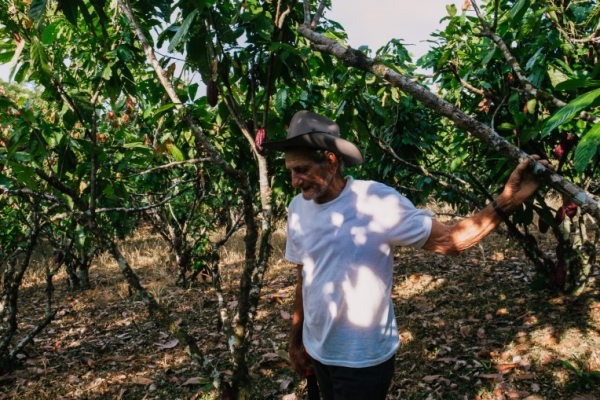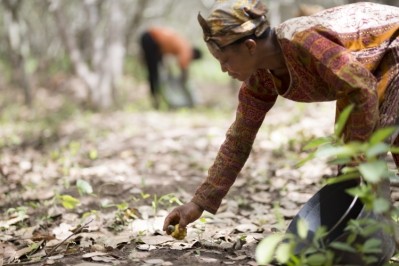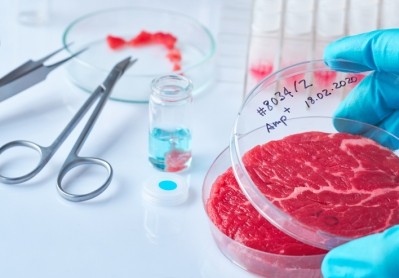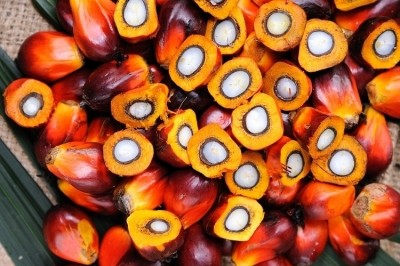Ben & Jerry’s pioneers living income for cocoa farmers: ‘The challenges we face as a planet come back to economic justice’

From October 2020 onwards, around 5,000 Fairtrade cocoa farmers in Ben & Jerry’s supply chain started to receive approximately $600,000 a year in additional payments. This amount is on top of the annual Fairtrade Premium of around $970,000 and the Ivorian government’s minimum price for cocoa that all companies are required to pay.
“The calculation takes a step above just basic needs. It recognises that there is a quality of lifestyle that you want to start with. The [Fiartrade] Living Income Reference price for us is not about a final crossing line. In so many ways it’s the beginning of the journey,” Global Values Led Sourcing Manager Cheryl Pinto explained.
This is the latest in a range of interventions that Ben & Jerry’s have implemented together with Fairtrade since 2015. These activities include productivity, diversification and co-operative strengthening, sustainability initiatives that are common in the cocoa sector as large corporations work to support the farmers supplying them. But Ben & Jerry’s also believes price needs to come into the mix if the industry is to support a transition to a more sustainable system.
“You need to be able to bring price into this because otherwise there isn't an opportunity to create the livelihood that these farmers need,” Pinto told this publication.
“I often liken it to a three-legged stool. Productivity, professionalisation and price. You need all of them. If there is the ability to support farmers through agronomy and education… that's a big boon. But price has to come into play. You cannot just keep growing, growing, growing more, oversupplying the market and watching that price drop. You need to be able to have that multiplication factor of a dignified price, a decent price. That is why we decided to go with the Fairtrade Living Income Reference Price.”
Fairtrade’s Living Income Reference Price indicates the price needed for an average farmer household with a viable farm size and an adequate productivity level to make a living income from the sales of their crop. Fairtrade has set this reference price at $2.2 per kilo of cocoa at farm gate price.
The importance of tackling poverty
According to Pinto, the food industry needs to face up to the role supply chains play in supporting a system that is built on inequity.
Poverty can be viewed as the route cause of problems ranging from forced and child labour, to deforestation and climate impact, she continued.
Inequality in the cocoa chain means farmers are trapped in extreme poverty and can’t afford to invest in more progressive farming methods to improve their income or adapt to a changing climate. In turn, rural communities are held back and the natural environment suffers.
"It completely boils down to poverty,” the sourcing expert argued. “All of these big challenges that we face as a planet come back to economic justice. We feel that is the unlock. We have to work with all of those along the supply chain to really bring in inclusivity and equity. It is about sharing that fair distribution and being able to honour the contributions all make.”
Action on pricing is also necessary for the longevity of the cocoa sector – and rural development more generally – because endemic poverty is forcing the next generation of farmers to look for new opportunities in urban areas or industries like mining.
“The next generation of farmers see their parents struggling to make this livelihood work. I think this is the biggest issue when it comes to any farming lifestyle. It's cocoa here but it is happening across the Global South. It happens even in the North… That's why we also believe in longer term contracts with farmers so they can count on having an income for the crops they are growing rather than being at the mercy of the commodities markets.
“A farmer needs to be able to feed herself and her family before she can feed the world.”

Collaboration needed to move the needle
Ben & Jerry’s purchases across all commodities are significant, generating US$3.6m in Fairtrade Premiums in 2019 for farming communities.
However, in the scale of the global cocoa sector, which had a market value of US$73bn in 2019, Ben & Jerry’s is a minnow. And the company is starting this initiative only with the cocoa used for its chocolate ice cream mix – not that in its chunks, brownies or cookie dough.
Ben & Jerry's decided to kick-off its living income efforts with this focus because the group sources cocoa for its ice cream mix from a single trader, meaning that the ice cream maker can work directly with that trader and the four cooperatives that supply it.
Working through Fairtrade, Ben & Jerry’s purchases mass balance cocoa. This means that the focus of this initiative is ‘economic traceability’, Pinto elaborated.
The next stage for Ben & Jerry’s is to track the impact that these additional payments have on the cocoa communities they are supporting. “There are many things to consider as we try to do this in an equitable way. Over the next year, next two years, we will be studying this before we expand it. We are going to be sharing our data and studies with various stakeholders and our fans. We want to raise awareness and education.”
As the company moves to scale up its efforts, the complex nature of the supply chain means this will not always be easy, Pinto noted.
“It does become really quite diffuse because there are so many cocoa farmers. Cocoa beans enter this large commercial milling process, there are handovers,” she explained.
For this reason – as well as the need to support widespread structural change – Pinto hopes to see increased collaboration around cocoa sustainability efforts.
“It is important that, as an industry, we keep looking at this, to start to really peruse the traceability. And it's hard.
“We are inviting others to work with us, learn with us. No single group or company can do this by themselves. The industry has to change, and you need everybody in on this, moving in the same direction. Collaboration and learnings are critical. And this is a critical time.”
Expanding the living wage
Unilever, Ben & Jerry’s parent company, pledged to ensure that everyone who directly provides goods and services to it earns at least a living wage income by 2030 earlier this month.
As Ben & Jerry’s evaluates the impact its price premium is having on cocoa farmers, Pinto expects the approach could be rolled out to additional commodities in the ice cream supply chain.
“Living income for cocoa farmers will be extrapolated to living income for vanilla farmers and other farmers. We are trying to look across a broad spectrum.”
Pinto argued that a focus on ‘dignified livelihoods’ will help build a more resilient, environmentally friendly and equitable food system.
“All this is about coming up with regenerative ways of growing food that continues to preserve our current forests and support a climate resilience plan… It is about that social element of climate change.”
This is an area that Pinto believes Ben & Jerry’s ‘fans’ expect the company to take a stand on.
“We follow through with our values, which are about human rights, ecosystem regeneration, diversity and inclusion. These are values that we uphold and try to ensure they are manifested in our supply chain. We use the power of every dollar we spend to invest in our values. Through this, our fans come on the journey with us,” she claimed.
“So much can be alleviated if we address the challenge of poverty around the world. There would be so much more peace and justice. We would have the bandwidth to be good stewards of this planet.”


























